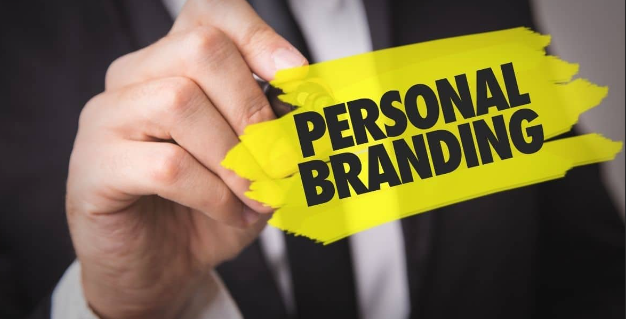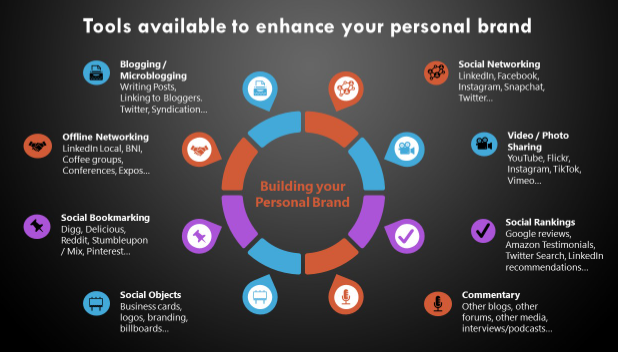Introduction to Personal Branding
- What Is Personal Branding?
- Why Is Personal Branding Important?
The Core Elements of Personal Branding
- Defining Your Unique Value Proposition
- Identifying Your Target Audience
- Crafting Your Personal Story
Building a Personal Brand
- Establishing an Online Presence
- Creating a Personal Website
- Leveraging Social Media Platforms
- Networking and Building Relationships
- Content Creation and Thought Leadership
- Establishing an Online Presence
Maintaining and Growing Your Personal Brand
- Consistency in Messaging
- Continual Learning and Adaptation
- Monitoring and Managing Your Online Reputation
Common Mistakes in Personal Branding
- Lack of Authenticity
- Inconsistency in Content and Message
- Ignoring Feedback and Engagement
Benefits of a Strong Personal Brand
- Career Advancement Opportunities
- Enhanced Credibility and Trust
- Personal and Professional Growth
Conclusion
FAQs
- What are the first steps to starting a personal brand?
- How do I stay authentic while building my brand?
- How often should I update my personal brand?
- Can personal branding help in changing careers?
- What tools can I use to manage my personal brand?
Personal Branding: How to Build and Maintain Your Unique Identity
Introduction to Personal Branding
In today’s digital age, personal branding is more crucial than ever. But what exactly is personal branding? And why should you care about it?
What Is Personal Branding?
Personal branding is the process of creating and promoting a public image or identity that reflects your values, skills, and experiences. It's how you present yourself to the world, both online and offline. Think of it as your personal trademark that distinguishes you from others in your field.
Why Is Personal Branding Important?
A strong personal brand can open doors to new opportunities, build trust with your audience, and establish you as a thought leader in your industry. Whether you’re looking to advance your career, grow your business, or simply make a mark in your community, personal branding is your ticket to standing out in a crowded marketplace.
The Core Elements of Personal Branding
Before you can build a strong personal brand, you need to understand the core elements that make up your brand.
Defining Your Unique Value Proposition
Your unique value proposition (UVP) is the combination of skills, experiences, and qualities that set you apart. What do you offer that no one else does? Defining your UVP is the first step in creating a personal brand that resonates with your audience.
Identifying Your Target Audience
Just like any successful brand, you need to know who you're trying to reach. Identifying your target audience helps you tailor your message and ensure that it resonates with the right people. Ask yourself: Who can benefit most from what I offer?
Crafting Your Personal Story
Your personal story is the narrative that ties your brand together. It's not just about listing your accomplishments; it's about sharing your journey, the challenges you've overcome, and what drives you. A compelling story can make your brand more relatable and memorable.
Building a Personal Brand
Once you've defined the core elements of your personal brand, it's time to start building it.
Establishing an Online Presence
In today’s digital world, your online presence is often the first impression people have of you. Here’s how to make it count:
Creating a Personal Website: A personal website acts as your digital home. It's a place where people can learn about you, see your work, and get in touch. Make sure it reflects your brand's tone and message.
Leveraging Social Media Platforms: Social media is a powerful tool for personal branding. Choose platforms that align with your audience and industry, and use them to share valuable content, engage with followers, and showcase your expertise.
Networking and Building Relationships
Building a personal brand isn’t just about what you say about yourself; it’s also about what others say about you. Networking helps you build relationships with people who can support and amplify your brand. Attend industry events, join online communities, and don’t be afraid to reach out to people you admire.
Content Creation and Thought Leadership
Creating content is one of the best ways to establish yourself as a thought leader. Whether it’s through blog posts, videos, podcasts, or social media updates, consistently sharing valuable insights helps build your credibility and authority in your field.
Maintaining and Growing Your Personal Brand
Building a personal brand is just the beginning; maintaining and growing it is where the real work lies.
Consistency in Messaging
Consistency is key to building a strong personal brand. Ensure that your messaging, tone, and visual elements are aligned across all platforms. This helps reinforce your brand identity and makes it easier for people to recognize and remember you.
Continual Learning and Adaptation
The world is constantly changing, and so should your personal brand. Stay updated with industry trends, learn new skills, and be open to feedback. Adaptation is crucial for keeping your brand relevant and fresh.
Monitoring and Managing Your Online Reputation
Your online reputation can make or break your personal brand. Regularly monitor what’s being said about you online, and address any negative feedback or misinformation promptly. Tools like Google Alerts can help you stay on top of your online presence.
Common Mistakes in Personal Branding
Even the best intentions can lead to mistakes. Here are some common pitfalls to avoid:
Lack of Authenticity
Your personal brand should be a true reflection of who you are. Trying to be someone you're not can backfire and erode trust. Authenticity is crucial for building lasting relationships and credibility.
Inconsistency in Content and Message
Inconsistency can confuse your audience and weaken your brand. Make sure your content and messaging are aligned with your brand’s values and goals.
Ignoring Feedback and Engagement
Feedback is a valuable tool for growth. Ignoring it not only limits your personal development but also alienates your audience. Engage with your followers, listen to their feedback, and use it to improve your brand.
Benefits of a Strong Personal Brand
So, what do you gain from all this effort?
Career Advancement Opportunities
A strong personal brand can open doors to new job opportunities, promotions, and collaborations. Employers and clients are more likely to seek out individuals with a well-established personal brand.
Enhanced Credibility and Trust
When you consistently deliver value and demonstrate expertise, people start to see you as a trusted authority in your field. This credibility can lead to more opportunities and a stronger professional network.
Personal and Professional Growth
The process of building and maintaining a personal brand requires self-reflection, learning, and adaptation. These activities not only enhance your brand but also contribute to your personal and professional growth.
Conclusion
Personal branding is not just a buzzword; it’s a powerful tool that can significantly impact your career and life. By understanding its core elements, building your brand with intention, and maintaining it with care, you can create a lasting impression that opens doors and creates opportunities.
FAQs
What are the first steps to starting a personal brand?
Start by defining your unique value proposition, identifying your target audience, and crafting your personal story. These elements lay the foundation for a strong personal brand.
How do I stay authentic while building my brand?
Staying authentic means being true to yourself and your values. Don’t try to emulate others; instead, focus on what makes you unique and share that with the world.
How often should I update my personal brand?
Your personal brand should evolve as you grow. Regularly assess your brand, update your messaging, and adapt to changes in your industry and personal goals.
Can personal branding help in changing careers?
Absolutely! A well-established personal brand can showcase your skills, experiences, and versatility, making it easier to transition into a new career.
What tools can I use to manage my personal brand?
Tools like LinkedIn, Google Alerts, and social media management platforms (e.g., Hootsuite, Buffer) can help you build, monitor, and manage your personal brand effectively.






